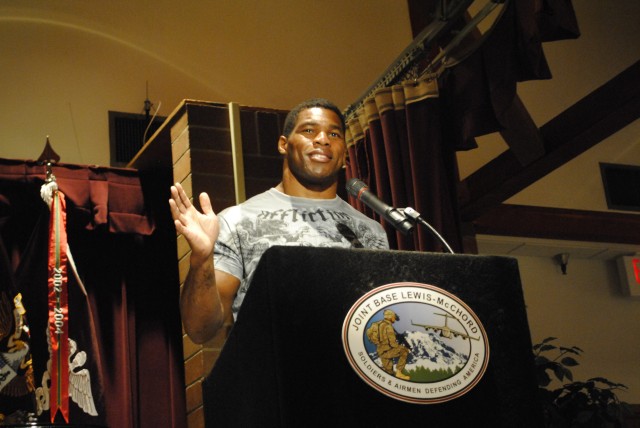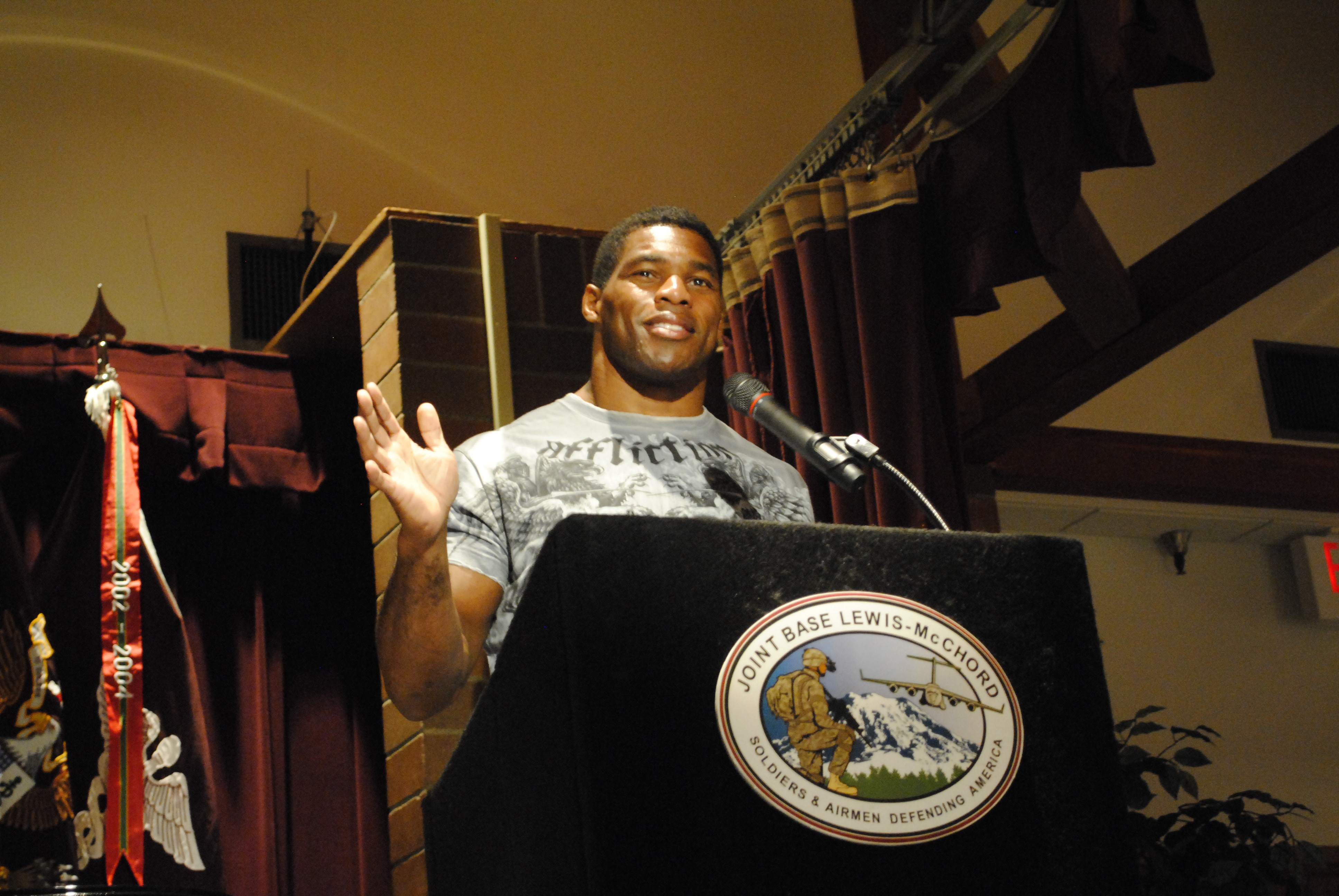The day was about more than just providing the facts.
It was about bringing together experts, celebrities, and Soldiers to tell the more than 470 attendees that there is no shame in suffering from Traumatic Brain Injuries or Post Traumatic Stress.
A myriad of presenters spoke at Madigan Healthcare System's TBI and PTS Symposium Nov. 4 at McChord Field. Soldiers, Family members, and civilian employees participated in the symposium, which featured speakers on the inner workings of TBI, the options of treatment available and how to interact with someone suffering from TBI or PTS.
"I applaud you for being here today. Thanks for stepping up to learn about new treatments to overcome adversities in your Families, our Families. Your presence here shows the fact that we as a profession of arms have broken the stigma of seeking help. We cannot fight this fight without you," said 1st Corps Command Sgt. Maj. Frank Grippe.
The audience was a mix of Soldiers, Family members, Madigan providers and supportive community resources available work to overcome TBI and PTSD.
The full-day symposium began with an overview by Dr. Fred Flynn about the causes of TBI, aimed at educating Family members. Flynn covered how TBI can occur, what physical portion of the brain can be affected and how that will present in a service member. Flynn mentioned that the most common symptoms of TBI are headaches and sleep disturbance as well as fatigue. He also discussed common cognitive symptoms such as memory problems and attention or concentration issues. Behavioral symptoms service members typically present include depression, anxiety and irritability. Doctors often refer to TBI as mild Traumatic Brain Injury or mTBI.
It is similar to a concussion. "Mild is a clinical definition. It is not a description of the level of suffering or problems for the patient," Flynn said.
The symposium continued covering the effects of TBI. This included a discussion of memory loss and the work being done to repair memory and medicines available to treat the issues. A highlight of the day was a presentation from Herschel Walker who discussed dealing with multiple personality disorder and his work to seek treatment. "I want to talk to service members about there being no shame in asking for help. I just want them to know there is no shame, it's not weak, you're not less of a person if you ask for help," Walker said.
The day was wrapped up with an opportunity to interact with a subject matter expert panel and a Soldier, Sgt. Shane Van Fossen, who suffers from TBI.
"I'd already been told I was broke," Van Fossen said. "The doctor at Madigan said to me 'I don't know who told you that, but you can be fixed.'"
The Soldier went on to detail his work to get better from PTSD and TBI.
"I wanted to be healthy. I had kids at home and a wife. I decided I wasn't going to live my life under the restraints of PTSD or TBI. I decided I was going to do something about it and I wasn't going to be the next statistic. I was going to be a success story. Just make the choices to do the right thing," Van Fossen said.
At 4 p.m., the Soldiers and Family members filed out of the eight hour symposium discussing the day's information. More than 470 members of the Joint Base Lewis-McChord team heard how TBI and PTSD can be treated and lead to a healthier life in the future.
"I really wanted to learn what Soldiers are dealing with," said Chihiro Carpenter, a military Family member. "When the Soldiers come home, we should just let them talk. When they don't want to talk about certain things we shouldn't try to get all the details from them."


Social Sharing